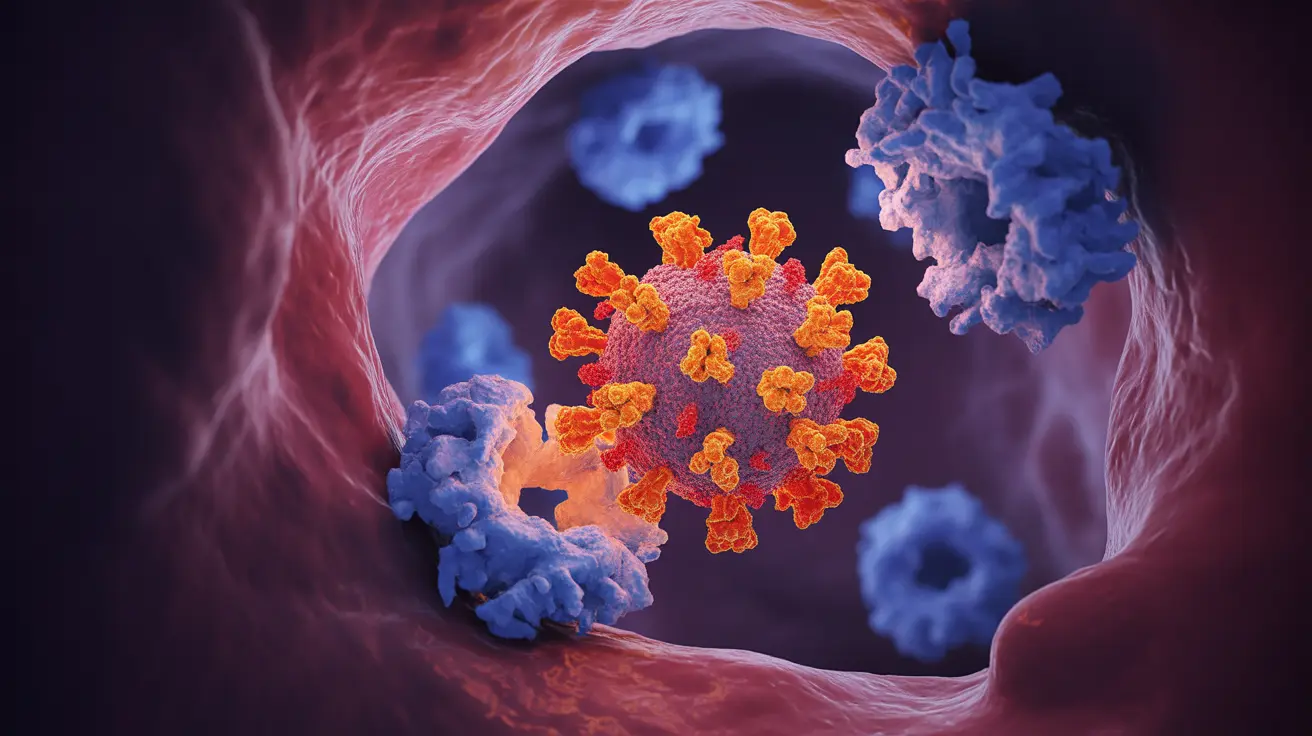While both HIV and autoimmune diseases affect the immune system, they operate in fundamentally different ways. HIV (Human Immunodeficiency Virus) is a viral infection that attacks the immune system, while autoimmune diseases occur when the immune system mistakenly attacks healthy cells. Understanding these distinctions is crucial for proper medical care and treatment approaches.
How HIV Affects the Immune System
HIV specifically targets and destroys CD4+ T cells, which are crucial components of the immune system. Unlike autoimmune conditions, HIV gradually depletes these essential immune cells, making it harder for the body to fight off infections and diseases. This process is distinctly different from autoimmune disorders, where the immune system remains intact but functions incorrectly.
The Progression from HIV to AIDS
As HIV advances, it can lead to AIDS (Acquired Immunodeficiency Syndrome), characterized by a severely compromised immune system. This progression occurs when CD4+ T cell counts fall below 200 cells per cubic millimeter of blood, or when specific opportunistic infections develop. This differs significantly from autoimmune disease progression, which involves inflammation and tissue damage from an overactive immune response.
The Connection Between HIV and Autoimmune Conditions
While HIV itself is not an autoimmune disease, people living with HIV may develop autoimmune conditions. This can occur due to the complex interactions between the virus, the immune system, and various environmental factors. The relationship between HIV and autoimmune disorders is an area of ongoing research and medical interest.
Common Autoimmune Manifestations in HIV
Some individuals with HIV may experience autoimmune-like symptoms or develop specific autoimmune conditions. These can include conditions such as inflammatory arthritis, lupus-like symptoms, or various blood disorders. However, these manifestations often present differently than traditional autoimmune diseases and may require specialized treatment approaches.
The Role of Antiretroviral Therapy
Modern antiretroviral therapy (ART) has revolutionized HIV treatment by helping to preserve immune function and prevent the progression to AIDS. Unlike treatments for autoimmune diseases, which often involve suppressing the immune system, ART works by preventing HIV from reproducing and destroying immune cells, allowing the immune system to maintain or rebuild its strength.
Frequently Asked Questions
Is HIV considered an autoimmune disease or an infection that affects the immune system? HIV is definitively an infection that affects the immune system, not an autoimmune disease. It is caused by a virus that attacks and destroys specific immune cells, whereas autoimmune diseases involve the immune system attacking healthy body tissues.
How does HIV weaken the immune system differently from autoimmune diseases? HIV weakens the immune system by directly destroying CD4+ T cells, gradually reducing the body's ability to fight infections. In contrast, autoimmune diseases involve an overactive immune system that attacks healthy tissues while remaining functionally intact.
Can people with HIV or AIDS develop autoimmune diseases, and how common is this? Yes, people with HIV can develop autoimmune conditions, though the exact prevalence varies. The complex interaction between HIV and the immune system can trigger autoimmune responses, but these may present differently than in individuals without HIV.
What are the main differences between AIDS and autoimmune diseases in terms of causes and immune system effects? AIDS results from HIV infection and is characterized by severe immune system depletion, while autoimmune diseases involve an overactive immune response. AIDS is caused by a virus, whereas autoimmune diseases typically result from genetic and environmental factors.
How is the immune system impacted by HIV, and what role does antiretroviral therapy play in managing immune dysfunction? HIV impacts the immune system by destroying CD4+ T cells, compromising overall immune function. Antiretroviral therapy helps prevent viral replication, protecting remaining immune cells and allowing the immune system to maintain or recover its function.




